 |
 |
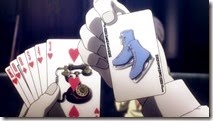 |
 |
 |
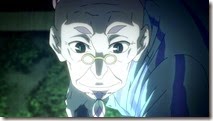 |
Tachikawa-sensei is just making it look easy now…
Has there ever been a gap this wide between the best series of a season and the second-best? It’s an interesting question to which I don’t know the answer, but intuitively it seems to me as if great series are more likely to come in good-to-great seasons – it’s pretty rare to see a show this elite when no other new series on the schedule is even close, and the season on the whole is mediocre to terrible. But then Death Parade is pretty much a square peg in modern anime terms in every way it’s possible to be, so one more aspect of that is hardly surprising.
How exciting it is to see a young talent like Tachikawa Yuzuru establishing himself as a future great in anime, and he does so all the more firmly every week. This show is artful in every sense, thoughtful and subtle while being wildly engrossing and always displaying top-notch production. Death Parade can wow you with a shout, as it did with last week’s masterpiece of an ep, but it can also wow you with a whisper – as this week’s episode proves. Stories like this one aren’t going to generate the mainstream buzz that the Shimada-Tatsumi thriller did, but they’re every bit as important to the story Tachikawa is telling – and probably even harder to pull off, and even more rewarding to the patient and attentive viewer.
With one line of dialogue – Decim’s protest to Nona that rather than reveal the darkness in the soul, the tricks of the arbiter’s trade may in fact be creating them – Death Parade reveals that it absolutely gets it, and has from the very beginning. I guess I’ve been conditioned to expect anime to respect its audience less than this show does, because I was skeptical of the notion that the entire premise was an elaborate construct designed to gently nudge us towards questioning that very premise. But that’s exactly what Tachikawa (and as writer, director and primary storyboarder, I’m comfortable making that statement) has done here.
The game within that game continues, as Nona’s power play with Oculus is clearly progressing to judge by Decim’s doubts. And after the grim, despairing and violent nature of the last story, we got one that’s the complete opposite – that of a decent, gentle and thoroughly likeable old woman (who’s apparently the widow of the Ojii-san from Death Billiards) who’s at peace with what’s happened to her. Uemera Sachiko (75 year-old Tani Ikuko, a Madhouse favorite fresh off playing Tsubone in H x H) is a mangaka who, superficially, seems to offer no obvious reason why she should need to be judged. By all accounts she’s died of natural causes, she seems to harbor no grudges or dark secrets, and she guesses what’s happened to her relatively early in the process. And I think all of that is entirely non-coincidental. Nona has sent her to Quindecim at this moment for a reason.
The backdrop for Sachiko’s arrival is the bombshell that Onna’s time at Quindecim is coming to an end – she’s overstayed her limit, and is beginning to turn into a dummy. Decim declines to have memories uploaded for this judgement, which theoretically pits Onna against Sachiko but in truth, isn’t a judgement at all (which is rather the point). The game of choice is Old Maid – fittingly low-key, and giving Sachiko the opportunity for a charming bit of self-deprecation. The hook is that the cards bear pictures related to the players, and as Decim is playing (Old Maid can’t be played by two players) that means some of the cards have bartending stuff (obvious), and some have manga drawings (cute and evocative, but expected). But the really interesting ones are the others, because they’re Onna’s – and while it’s not a shock that they include scenes from “Chavvot”, it does count as one to see one of Ginti’s Kokeshi dolls on a card.
This is one of many fascinating and thought-provoking twists in the episode. Seemingly, Onna is connected with Ginti somehow – but how? It’s also worth noting that the Joker – the card which defines the loser of the game – is a pair of ice skates. But Sachiko (she’s recognized that this is the afterlife because one card shows a manga character which existed only in her imagination) later observes that the one holding the Joker – the “trump card” – really ought to be considered the winner. Seeing those pictures from Chavvot (which Sachiko has recognized, though she didn’t write it) has triggered memories in Onna at last, the most immediately relevant being that her name is actually Chiyuki (read as “knowing” and happiness”). Sachiko shares what she remembers about “Chavvot”, that it was a story of a boy who fell in love with a girl who was deaf and longed to find a way to tell her, and notes how wonderful it is that all humans, irrespective of language, can communicate via things like smiles and frowns. And Chiyuki remembers being a little girl, having her mother read “Chavvot” to her, and that the girl in the book’s smile was her favorite part.
One could make the case that Sachiko was a “ringer” – someone sent in specifically by Nona to help Onna and Decim get to the truth, perhaps not even a true human at all. I prefer to think that she was simply a noble and kind soul, the right one for the right time, and that’s why Nona sent her – but either way, Nona clearly knew what she was doing. What we’re seeing here is a philosophical battle as fundamental as there is, debating the very nature of the meaning of life. Ginti professes to believe that there is no meaning – either to their judgments (“arbitrary” sounds a lot like “arbiter”) or to human lives themselves – people simply live for the purpose of eventually dying. But Decim – theoretically incapable of human emotion – is fundamentally offended by this. He sees it differently – that people die because they’ve lived, rather than living because they’re going to die. It’s a subtle distinction, but could hardly be more profoundly meaningful.
We have a story (“Chavvot”) within a story (Decim and Onna, Nona’s struggle with Oculus – which is heating up in a big way now as Oculus shows off tricks that would make Watashi from Jinrui proud), within the real story – a pondering on the very meaning of existence. This is breathtaking stuff, and it’s impossible not to feel hopeful about the future of anime while watching it play out. Death Parade gets better as it goes, revealing more and more depth and subtlety but never before it’s the right time to do so, all the while managing to obey the Hippocratic Oath of fiction – “First, be entertaining as hell”. That there are still people making such intelligent and challenging anime is a thing to be celebrated – that this one is the product of a 33 year-old with a boundless creative future ahead of him is the icing on the cake.
 |
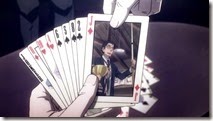 |
 |
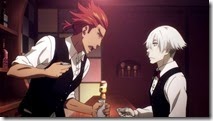 |
 |
 |
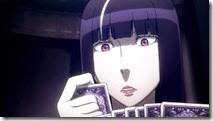 |
 |
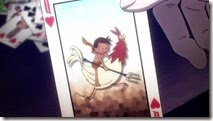 |
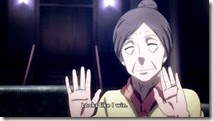 |
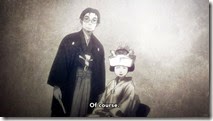 |
 |
 |
 |
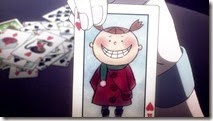 |
 |
 |
 |
 |
 |
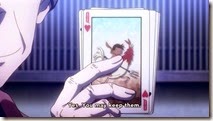 |
 |
 |
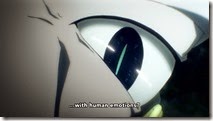 |
 |
 |
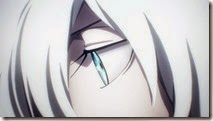 |
 |
 |
 |



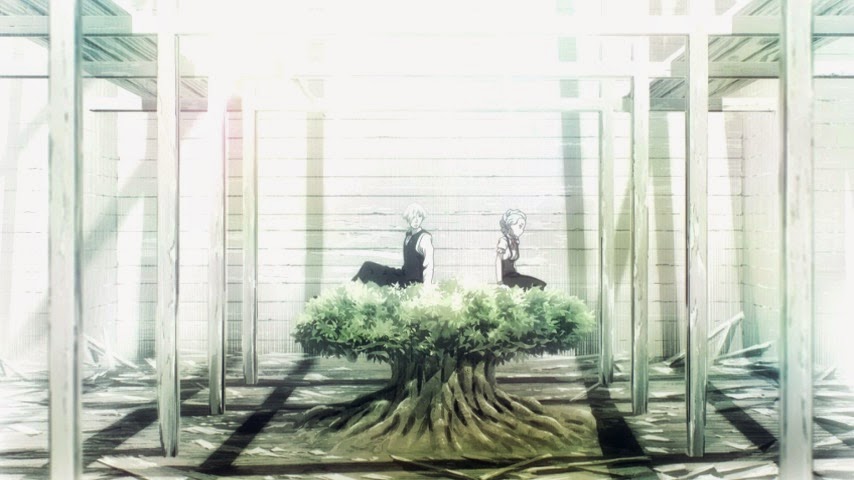
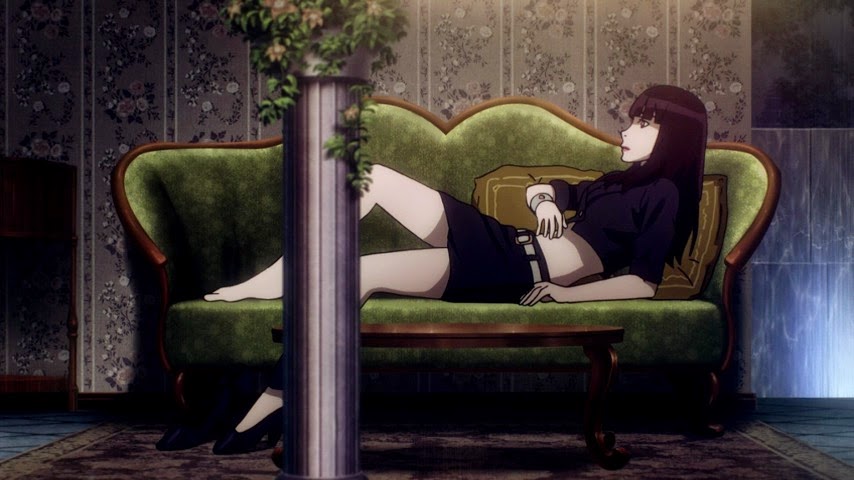
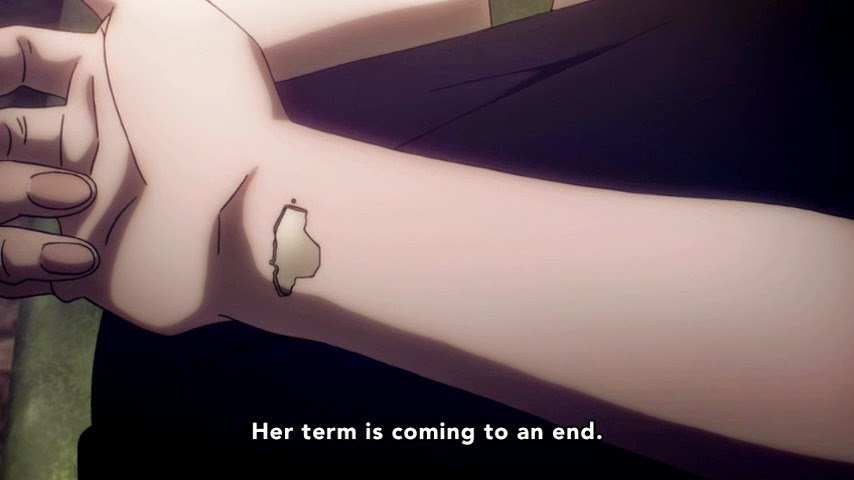
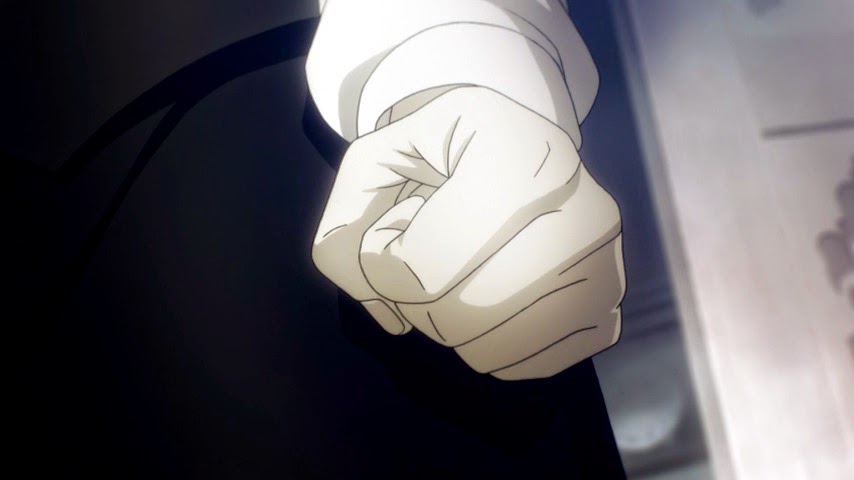
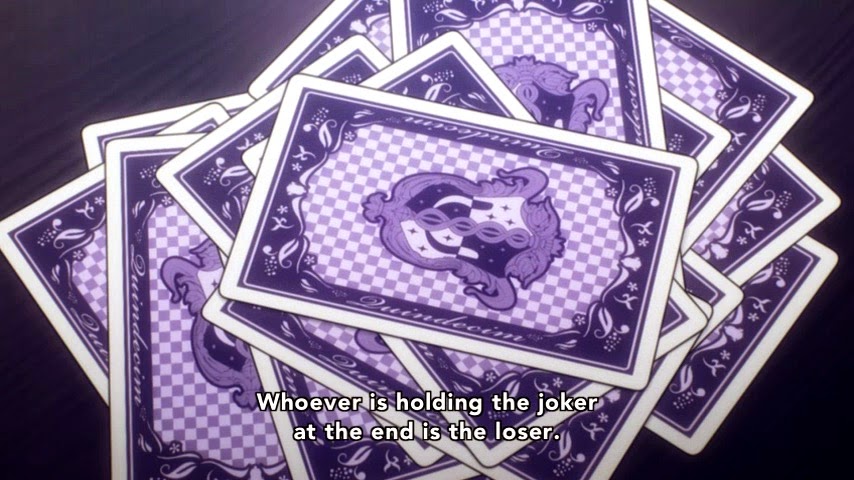
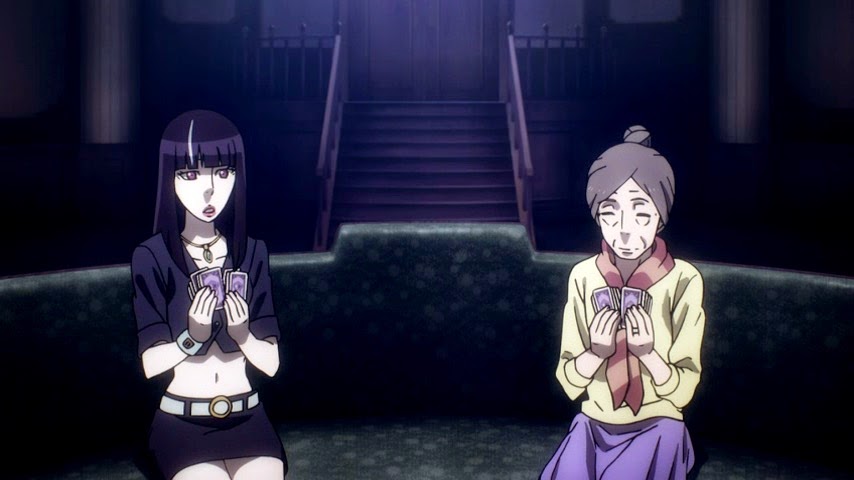
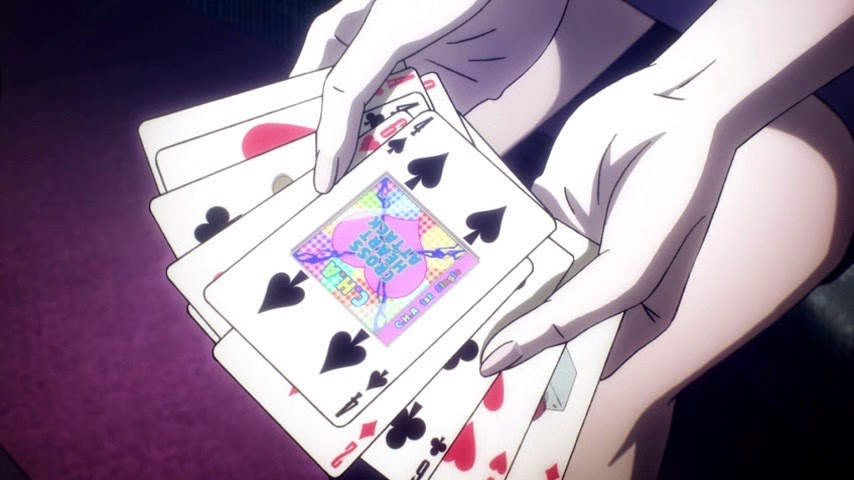
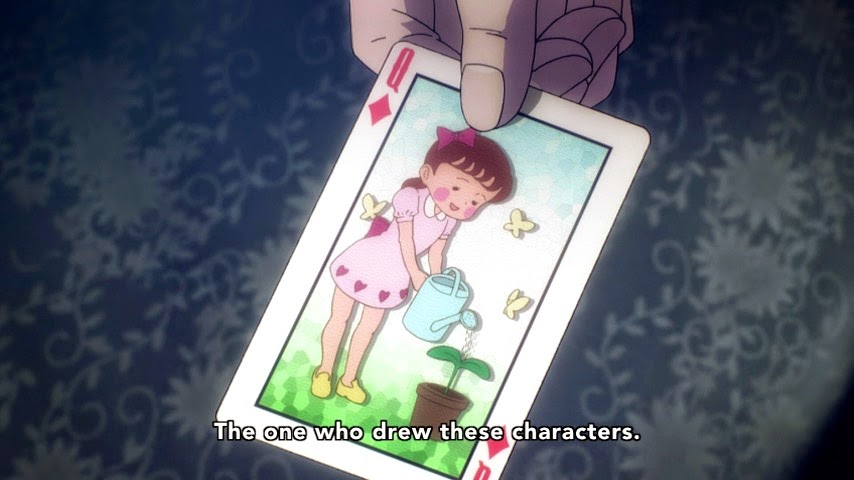
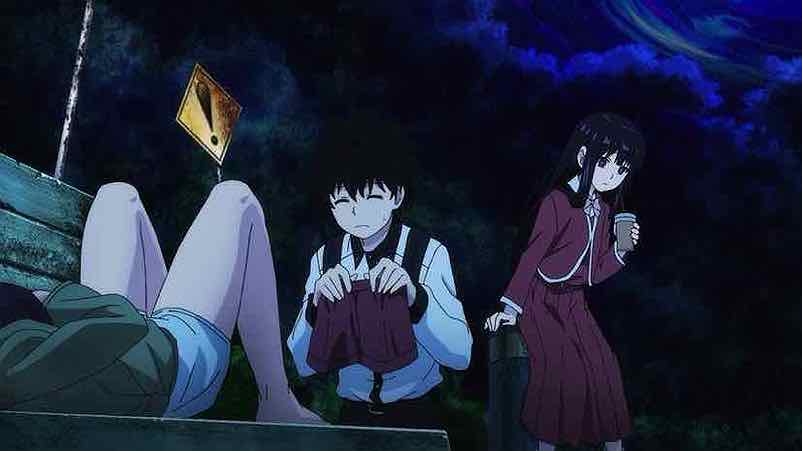

Zeta Zero
March 14, 2015 at 7:16 am"it's pretty rare to see a show this elite when no other new series on the schedule is even close, and the season on the whole is mediocre to terrible".
I disagree. I think this season has performed better than expected. It's better to have a season surprise you than have, say, a Spring season promise the world only to crash and burn halfway through.
Gary Cochran
March 14, 2015 at 10:05 pmWay too many series could have been great (or at least good) if not for too much ecchi. Absolute Duo, Cross Ange, Shinmai Maou, Isuca, and Unlimited Fafnir are all fun to watch series ruined by ecchi.
eternia
March 16, 2015 at 2:59 amShinmai Maou, an anime that tried to be porn each episode, even though it has demon princess who's chased by demons.
But it isn't Shingeki no Bahamut, lol.
pocarisweat88
March 14, 2015 at 7:57 amI don't think Enzo is including Fall 2014 carryovers in his assessment, because if that's the case I agree with him. This winter 2014 is flat out terrible. The second best series for me is probably Rolling Girls, which is inconsistent as hell and I wouldn't give the series more than a 7/10 (it's proably closer to 6/10).
Zeta Zero
March 14, 2015 at 8:04 amYou would think that if you are of a certain inclination. There are a couple of series not blogged here that are performing admirably.
Magister kunajak
March 14, 2015 at 8:45 pmCare to name-drop some?
Zeta Zero
March 14, 2015 at 10:46 pmYuri Kuma Arashi
Junketsu no Maria
Neither of which is what it appears on paper if you look past the surface detail.
Yana Anastasova
March 14, 2015 at 10:57 amCorrect me if I'm wrong, Enzo, but is it true that Death Parade is actually doing quite poorly in Japan in temrs of sales/popularity?
admin
March 14, 2015 at 12:56 pmThere would be no way to know at this point. There are no volume sales, only a boxed set in the summer. There's no source material to promote. TV ratings for a late night anime are effectively meaningless.
Zeta Zero
March 14, 2015 at 10:51 pmIf they threw a little girl into the mix the ratings would probably shoot up. Oh Japan!
eternia
March 16, 2015 at 3:00 amToo bad the women are all grown up!
+a granny to boot!
Hangman
March 14, 2015 at 1:38 pm"Has there ever been a gap this wide between the best series of a season and the second-best? It's an interesting question to which I don't know the answer"
I'm probably watching and enjoying more than you? so I couldn't tell you either. What I have noticed is that there is a healthy amount of new shows that have continually made the top of peoples' week-to-week lists: Death Parade, Binan, Yatterman, Maria, LesBears & Rollin' Gurls.
It's a light season with plenty of sequels, but I thought that was always the way with Winter? There's also the cold hard fact that Winter practically serves as the arse end of Fall. Seems a lot of carryovers have been doing well too.
whemleh
March 14, 2015 at 4:13 pmI actually assumed the Koteshi dolls were a 'Decim' card, since we also have a Cross Heart Attack card in the deck. That it gave Decim pause wasn't because it might relate to Chiyuki in some way, but because in seeing it he recalled his conversation with Ginti on the point of judgements. As for the ice-skates, recall the Chavvot story from episode 5 involved ice-skating, though I'm not sure how that all fits together.
This might actually be my personal favourite episode. The music, writing, direction and atmosphere were just so on point. Well, I suppose it's like that every episode.. Very interested to see where they're taking this for the final stretch.
Kaname
March 14, 2015 at 5:58 pmThe whole thing is superb and it seem that Nona had earn Oculus's wrath.
Yann
March 14, 2015 at 7:33 pmWhat makes you think the Kokeshi doll card was hers and not Decim's?
admin
March 14, 2015 at 11:55 pmYes, that could go either way. I'm guessing.
John Gottschalk
March 15, 2015 at 12:01 pmYeah, this is what I was wondering too, since you stated it so boldly in your text. To me it seems like Decim has more connection to Ginti, considering they're both Arbiters with emotion.
Although it's leading them in different directions.
The only cards that could be definitively drawn back to Chiyuki are the Chavvot characters and the ice-skates.
melodic thoughts
March 25, 2015 at 3:18 pmThat "gulp the head" scene reminds me of Parasyte!
It's always a delight to see old women/men in anime – they're always so gentle and nice.
I also agree that the Ginti kokeshi card is related to Decim, his cards also portrayed wine glasses and the people he has judged so it would make sense to have people he knows on the job too.